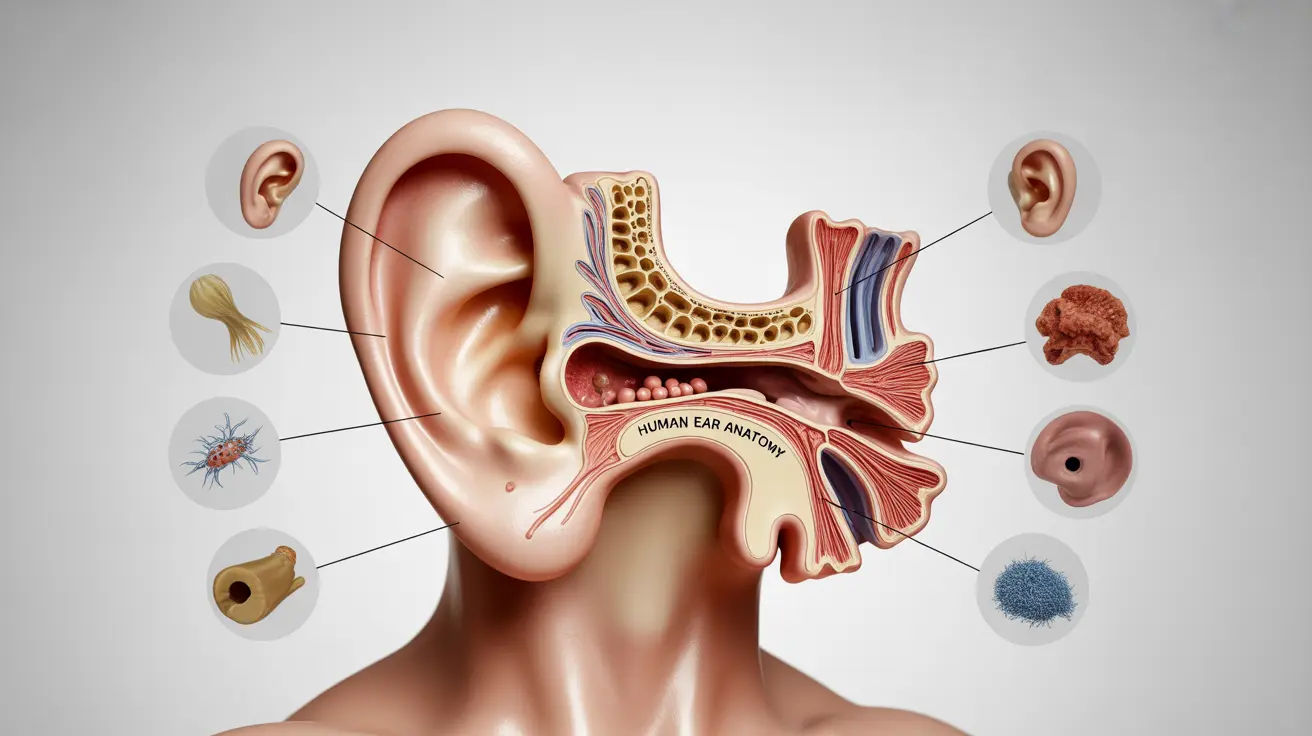Experiencing itchy ears can be both uncomfortable and frustrating. This common condition, while usually harmless, can significantly impact your daily comfort and may signal underlying health issues that require attention. Understanding the causes and available treatments can help you find relief and know when to seek professional care.
In this comprehensive guide, we'll explore the various causes of itchy ears, effective home remedies, and important warning signs that indicate when medical attention is necessary. We'll also discuss prevention strategies to help you avoid future discomfort.
Common Causes of Itchy Ears
Itchy ears can stem from several different sources, each requiring specific approaches for treatment:
Earwax Build-up
Excess earwax is a leading cause of ear itchiness. While earwax naturally protects your ear canal, too much can lead to irritation and discomfort. The body typically manages earwax levels naturally, but sometimes it needs assistance in maintaining proper balance.
Infections
Both bacterial and fungal infections can cause itching in the ears. Swimmer's ear (otitis externa) is a common infection that occurs when water remains in the ear canal, creating an environment where bacteria can thrive. Fungal infections often develop in humid conditions or after antibiotic use.
Skin Conditions
Various dermatological conditions can affect the ears, including:
- Eczema
- Psoriasis
- Contact dermatitis
- Seborrheic dermatitis
Allergic Reactions
Environmental allergies and sensitivities to hair products, earrings, or hearing aids can trigger ear itchiness. Seasonal allergies may also contribute to ear canal irritation.
Safe and Effective Home Remedies
When dealing with itchy ears, several home treatments can provide relief:
Over-the-Counter Solutions
Commercial ear drops designed for itching relief can be effective when used as directed. Look for products specifically formulated for ear care and avoid using drops if you suspect a perforated eardrum.
Natural Remedies
Several natural options may help alleviate ear itching:
- Warm olive oil drops
- Diluted apple cider vinegar
- Coconut oil application
- Saline solution rinses
When to Seek Medical Care
While many cases of itchy ears can be managed at home, certain symptoms warrant professional attention:
- Severe pain or inflammation
- Discharge from the ear
- Hearing changes or loss
- Persistent itching despite home treatment
- Dizziness or balance issues
- Fever
Prevention Strategies
Preventing itchy ears is often easier than treating them. Consider these preventive measures:
- Keep ears dry after swimming or bathing
- Avoid inserting objects into ear canals
- Use hypoallergenic ear products
- Clean hearing aids regularly
- Manage underlying skin conditions
- Monitor and treat allergies promptly
Frequently Asked Questions
- What are the common causes of itchy ears and how can I tell which one I have?
Itchy ears are commonly caused by excess earwax, infections, skin conditions, or allergies. You can often identify the cause by accompanying symptoms: excess wax feels full and itchy, infections may cause pain and discharge, skin conditions usually show visible irritation, and allergies often occur seasonally or after exposure to triggers.
- What home remedies are safe and effective for relieving itchy ears at home?
Safe home remedies include over-the-counter ear drops, warm olive oil drops, diluted apple cider vinegar, and coconut oil. Always ensure your eardrum is intact before using any drops, and avoid inserting objects into your ear canal.
- When should I see a doctor for itchy ears instead of trying to treat them myself?
Seek medical attention if you experience severe pain, discharge, hearing changes, persistent itching, dizziness, or fever. These symptoms may indicate a more serious condition requiring professional treatment.
- Can allergies or skin conditions like eczema cause my ears to itch?
Yes, both allergies and skin conditions like eczema can cause ear itching. Allergies often cause general irritation, while skin conditions may show visible signs like redness, flaking, or scaling in and around the ear.
- How can I prevent itchy ears caused by earwax buildup or irritation from ear devices?
Prevent itchy ears by keeping them dry, avoiding cotton swabs, using hypoallergenic ear products, cleaning hearing aids regularly, and allowing natural earwax removal. If you use ear devices, take regular breaks and ensure proper fit and cleanliness.




